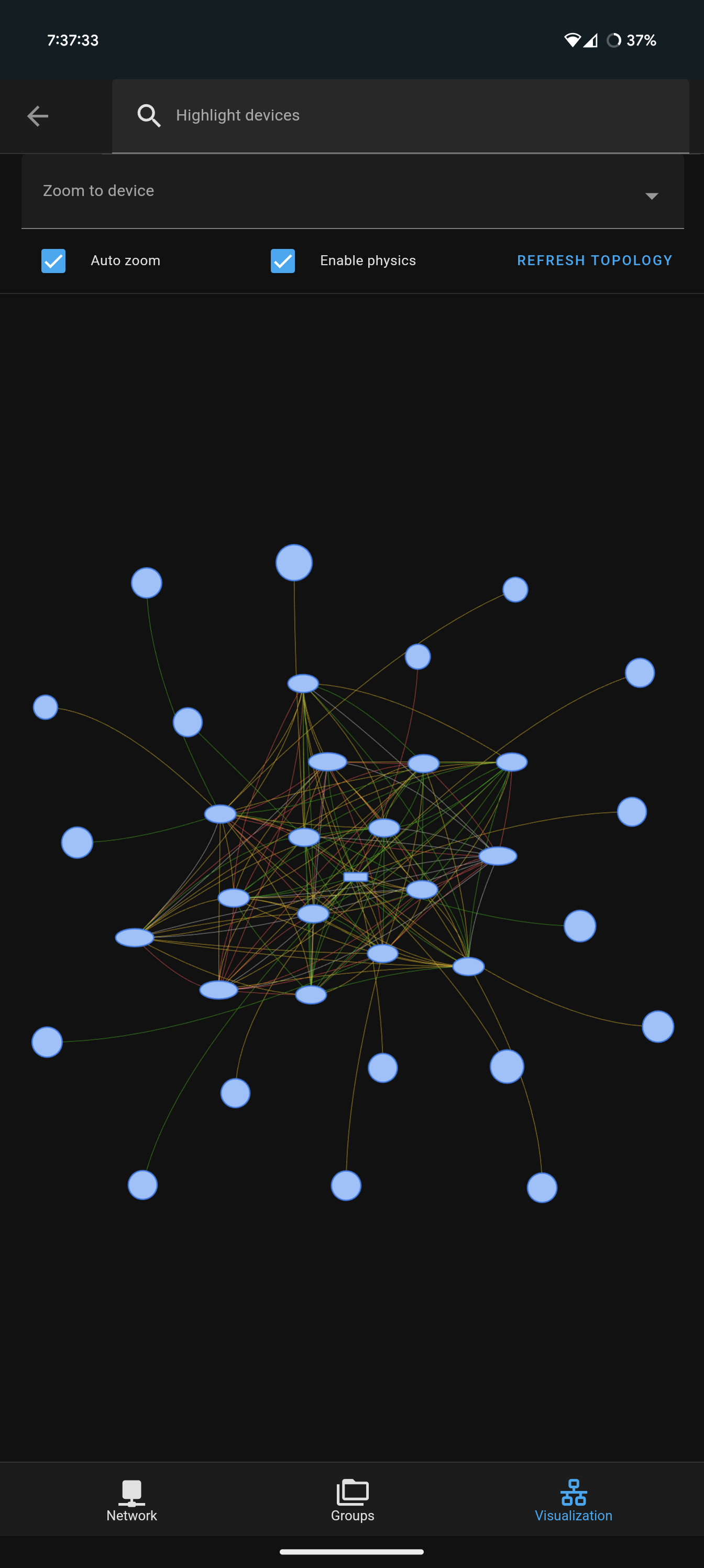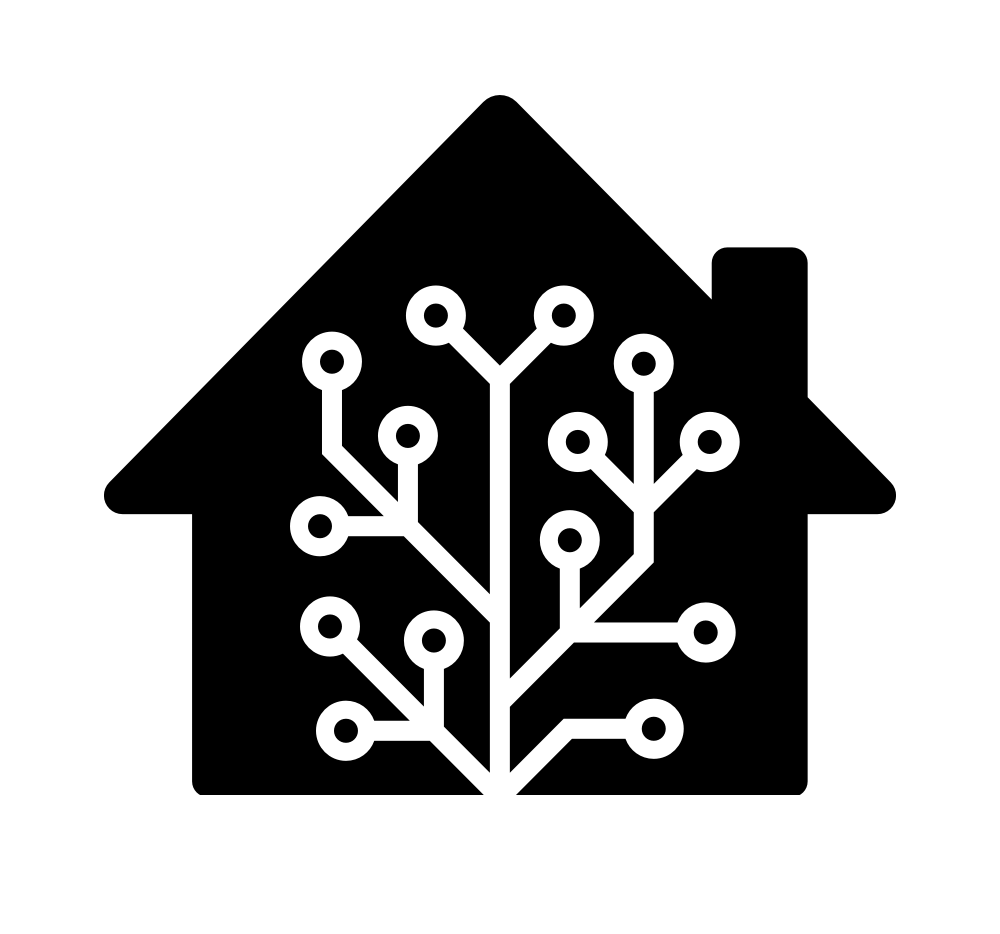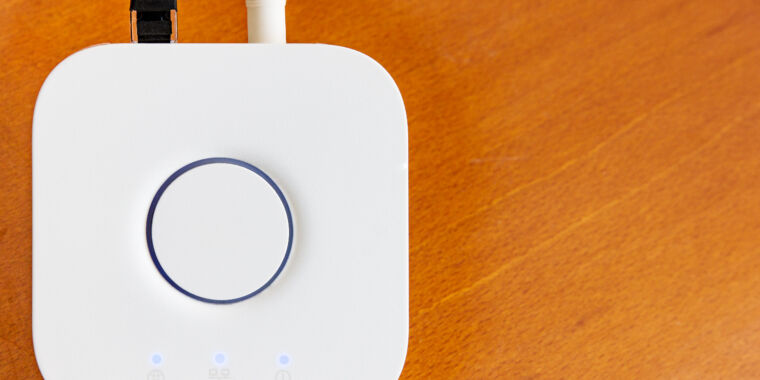When I started at Ars in the summer of 2022, the next generation of smart home standards was on the way. Matter, an interoperable device setup and management system, and Thread, a radio network that would provide secure, far-reaching connectivity optimized for tiny batteries. Together, they would offer a home that, while well-connected, could also work entirely inside a home network and switch between controlling ecosystems with ease. I knew this tech wouldn’t show up immediately, but I thought it was a good time to start looking to the future, to leave behind the old standards and coalesce into something new.
Instead, Matter and Thread are a big mess, and I am now writing to tell you that I was wrong, or at least ignorant, to have ignored the good things that already existed: Zigbee and Z-Wave. I’ve put in my time with Wi-Fi, Bluetooth, and various brittle combinations of the two. They’re useful for data-rich devices and for things that can stay plugged in. Zigbee and Z-Wave have been around, but they always seemed fidgety, obscure, and vaguely European at a glance. But here, in the year 2024, I am now an admirer of both, and I think they still have a place in our homes.
Is vaguely European supposed to be a bad thing?
That’s what jumped out at me too - seems an odd thing to think.
I read it as being more common/available in Europe, which to a North American journalist is a bit of a problem.
Kinda funny too, as I view z-wave as kinda American. It seems a lot less common than ZigBee stuff in my experience
In Aus, I only really see wifi stuff, ZigBee and Zwave are all crazy expensive. But I am also buying tuya garbage to reflash, so maybe thats my bias.
Dude’s Zigbee map is weak

I am heartened to hear this from a journo.
Every time there was a post hyping up how Matter would just fix everything…I was left thinking “but zigbee and z-wave already work?”.
I’ve said previously, that Matter is just going to fall in the gap.
Technically able consumers who want to own their own things want an open, existing protocol that is well supported by FOSS.
And consumers who just want thing to work will continue to use whatever a manufacturer shovels in.I use plenty of zigbee, but I wouldn’t have an Amazon or Samsung device on the property.
This is the best summary I could come up with:
Matter, an interoperable device setup and management system, and Thread, a radio network that would provide secure, far-reaching connectivity optimized for tiny batteries.
I knew this tech wouldn’t show up immediately, but I thought it was a good time to start looking to the future, to leave behind the old standards and coalesce into something new.
They did not, like a Nest camera above a former garage, lose signal midway through an update and require a 6-foot ladder and multiple support phone calls for a reset.
They did not, like a couple Tuya devices I acquired, require registering as a Canadian IoT developer to get local control (long story).
I have never tried to turn on a Hue bulb, had it fail, and then start wondering if it was my router, an Amazon Web Services outage, or just a cruddy little antenna inside the thing.
And while I didn’t know it back then, there was always the option to reset the bulbs and have them run on straight Zigbee, even if you lose some niceties, like fading and multi-bulb schemes.
The original article contains 644 words, the summary contains 180 words. Saved 72%. I’m a bot and I’m open source!
deleted by creator
Ohh that takes me back. I got my start in MCUs with a Beagle Bone + ZigBee cape for networking. I still think smart homes are the dumbest thing I’ve heard in a long time, but I suppose enthusiasts have paid a lot of my salaries, so maybe I should feel more warmly about it …






